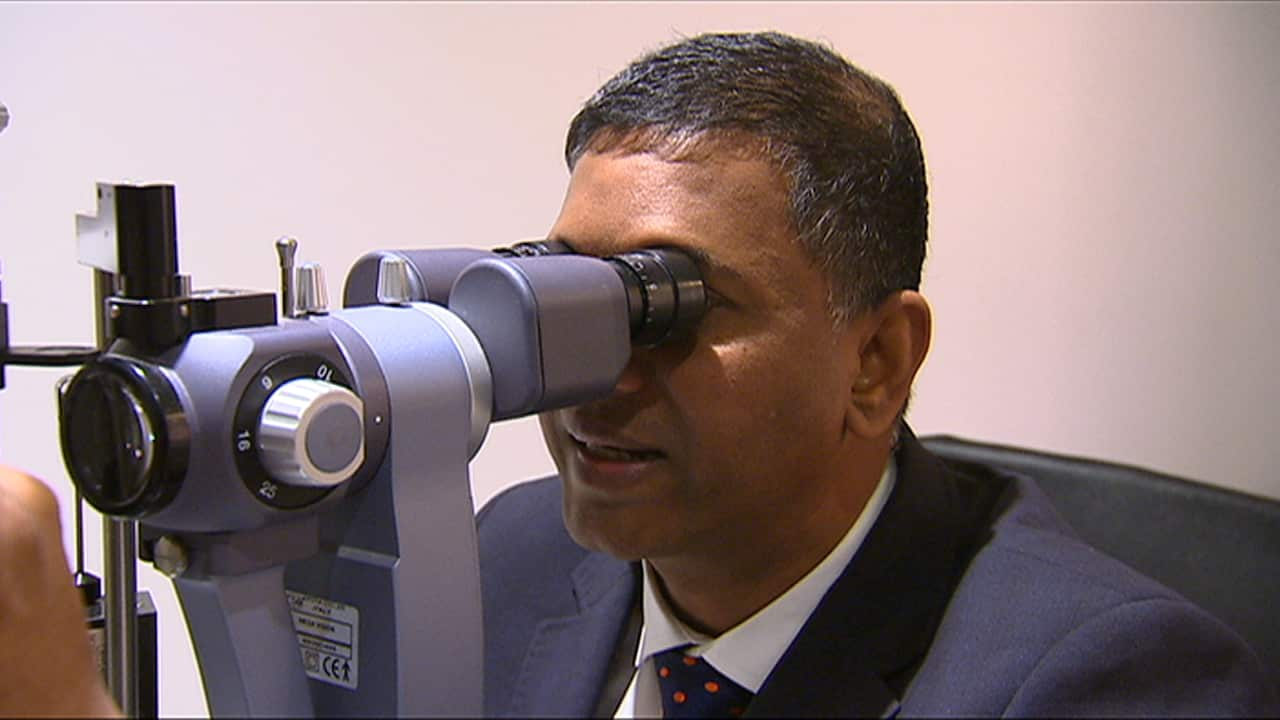For Queensland man Joseph Borg, life took a sudden turn when a surgery complication left him blind in one eye.
The doctors told him a bad bleed had spread to cover his left eye, leaving him with a condition called eight-ball hytheema.
Mr Borg said it made him realise how much he relied on his ability to see.
"You take things for granted but, with losing the sight, it's amazing how much confidence you lose,” Mr Borg said.
He was referred to Sydney eye surgeon Professor Chandra Bala late last year, who offered him a possible fix - non-invasive eye drops.
But there was a catch: they had never been tried before.
"He couldn't 100 per cent guarantee it of course, but he said he thinks there's a good chance of it clearing," Mr Borg said. Mr Borg took the chance and, after eight months, his eye had cleared completely.
Mr Borg took the chance and, after eight months, his eye had cleared completely.

Professor Bala migrated from India with his family in the late 1980s. Source: SBS World News
Professor Chandra Bala is the director of surgery at Personal Eyes clinics in NSW.
He claims to be a leader in eye innovation, trialing and finding new ways to treat eye conditions.
The Sydney ophthalmologist has received international recognition for pioneering the use of laser - in place of scissors - to cut and remove artificial lens in cataract patients.
Professor Bala said the laser technique, the first of its kind in the world, made an otherwise complex procedure simple.
"The scissors are difficult to open inside the eye, so it becomes a bit more challenging and it can take longer,” Professor Bala said.
“Because it takes longer, the other structures in the eye suffer. We use the laser to cut it, it takes 30 seconds to cut, and then you can take it out."
Professor Bala migrated from India with his family in the late 1980s and drew on an old Tamil saying to explain why he's driven to try new techniques.
"What you know is only the amount of mud you hold in your hand, the rest of the world you do not know," he said.
"So whilst we would like to give the reassurance that we know everything, it is nowhere near finished.
“And that's what makes it exciting, because the possibilities are endless."
As technology gets cheaper and safety improves, Professor Bala said he hopes the progress he makes today will one day help those in developing countries.
For now, his clinic donates second-hand glasses to vision-impaired people in the Solomon Islands.
Share
